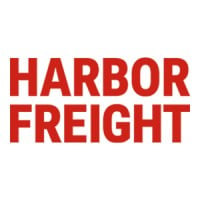
Harbor Freight Tools
We're a 45 year-old, $8 billion national tool retailer with the energy, enthusiasm, and growth potential of a start-up. We have over 1,600 stores in 48 states across the country and are opening several new locations every week. We offer our customers more than 7,000 tools and accessories, from hand tools and generators to air and power tools, from shop equipment to automotive tools. We provide our customers with the right tool for the right job at the right price, always delivering quality and value.






